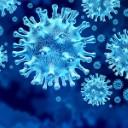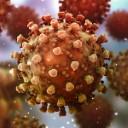Treatment
-
Treating Cancer Patients With COVID-19: A New York City Experience
An analysis of cancer patients who were infected with the coronavirus and treated at Memorial Sloan Kettering Cancer Center in New York City suggests certain risk factors may predict more severe COVID-19.
by Anna Azvolinsky
-
What is a Super Responder?
Researchers are investigating why certain patients have an exceptional response to a particular drug.
by Bradley Jones
-
Cancer and Older Adults: Can Oncologists Do Better?
Geriatric assessment reduces toxicity from treatment and improves quality of life in older adults with cancer.
by Marci A. Landsmann
-
Why Skip a Dose?
A survey of over 1,000 breast cancer patients prescribed endocrine therapy sheds light on low adherence.
by Emma Yasinski
-
Cancer Care Moves Forward Amid COVID-19
Following the arrival of the coronavirus in the U.S., people with cancer and their doctors are adjusting to new ways of doing things while continuing to seek and provide cancer care.
by Kate Yandell
-
Trials Interrupted
COVID-19 slowed or stopped enrollment in some cancer clinical trials.
by Kate Yandell
-
Registries Report on COVID-19 and Cancer
Data shed light on risk factors for death among people with cancer infected with the coronavirus.
by Kate Yandell
-
International Perspectives on COVID-19 and Cancer
Researchers from around the globe share insights into the outcomes of people with cancer who are infected with the coronavirus.
by Bradley Jones
-
Tumor Testing May Help Guide Pancreatic Cancer Treatment
For a small group of pancreatic cancer patients who were able to receive therapies targeting the molecular alterations in their tumors, these matched therapies were associated with longer life.
by Cheryl Platzman Weinstock
-
Cancer Treatment During a Pandemic
People being treated for cancer may be at elevated risk of developing severe cases of COVID-19. The coronavirus is also affecting how cancer care is delivered.
by William G. Nelson, MD, PhD














